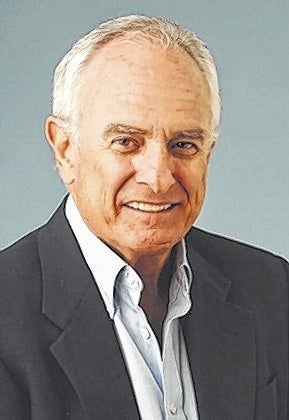Columnist: Socialized medicine
Published 12:00 am Wednesday, June 10, 2015

It has long been fashionable to cuss the government, government programs and everybody and everything in Washington from pay raises to the bureaucracy to Supreme Court decisions.
Lately, I have concluded that there has been more cussing about Obamacare than anything I can remember. Makes me wonder if we know what Obamacare really is?
All I know is that all these forms we complete when we go to the doctor seem to be an exercise in unnecessary redundancy. Go get a physical and you have to fill out a new form, even though you filled one out a year ago.
You gotta check your prostate, so your urologist requires a new form to be addressed. Same with your internist and with every other doctor you visit.
While I am sure somebody has benefited from Obamacare, I don’t seem to cross paths with any of them. All the testimony I get is negative.
There will always be doomsayers and those with a cynical bent. You may have foreign friends who are compatible with the idea of a national health plan in which there are no medical costs to the individual.
My English and French friends don’t ever complain about their medical experiences. Socialized medicine seems to work for them.
While I am not about an advocate of socialized medicine, I often reflect on the fact that it seems to work for them. Or, have I missed something?
A nasty car wreck in France gave me an exposure to the French system. A French friend was driving us home from dinner in the countryside when he nodded off and drove over the roadside, rolling a new Peugeot, which wound up in a cornfield.
Seat belts, I am convinced, saved our lives. From the cornfield to the nearest village, where there was an ambulance, to the nearest hospital where I was treated for a cut in the top of my head – before the seat belt grabbed me, I pitched headfirst into the review mirror, which required 12 stitches – I was given excellent attention.
There was a charge, but my French buddy, feeling badly after nearly killing his American friend, would not let me pay the bill. When I got home, I thought that I would try to have him reimbursed.
My insurance company representative advised, in the end, that it was too complicated to pay me for a bill from a foreign hospital. What I am underscoring is that it was a big headache, with curt resistance, for me to try to reimburse my French friend. I was insulted by my insurance carrier.
This reminds me of a story about an English couple who had reached that point in life to where they wanted to start a family. They made their plans carefully, giving full review of timing, finances and housing accommodations among other considerations. In the by and by, they reached a point where she concluded she was pregnant. She arranges to see her doctor.
After the doctor examined her, he confirmed that her suspicions were correct. She, indeed, was pregnant. It was a very routine examination, not a lot of conversation or small talk from the nurses or the doctor. The doctor sent her down the hall to a private room where she waited until a nurse came to see her.
The nurse had brought along a stamp and ink pad. The expectant mother was asked to fill out a few forms and then was told to lift her blouse so that the nurse could use the stamp and ink pad to stamp something on her tummy. She was then sent on her way.
Later in the day when the husband came home from work, she gave him the good news that the doctor confirmed that she was pregnant. They opened a bottle of wine and began to celebrate and talk about their future with a little one on the way.
He asked her about the visit to the doctor. She noted that it was very routine and simple and then told him about the stamp on her stomach. She then explained that it appeared to include some wording. She told him, she couldn’t make out the lettering. She asked him to take a look, but he could not make out the wording either. Subsequently, he got a magnifying glass and took a closer look. “What does it say?” she asked anxiously.
He replied, “When this lettering gets big enough that you can read this without the magnifying glass, it is time for you to go to the nearest hospital.”


